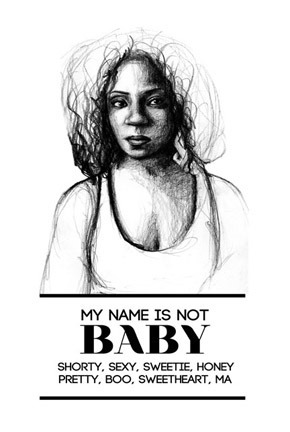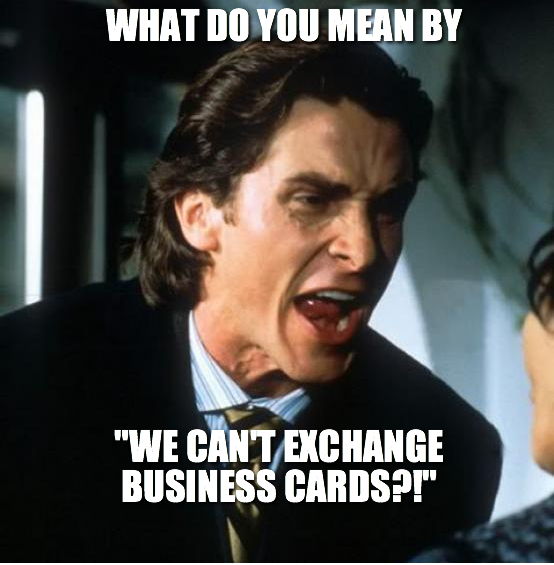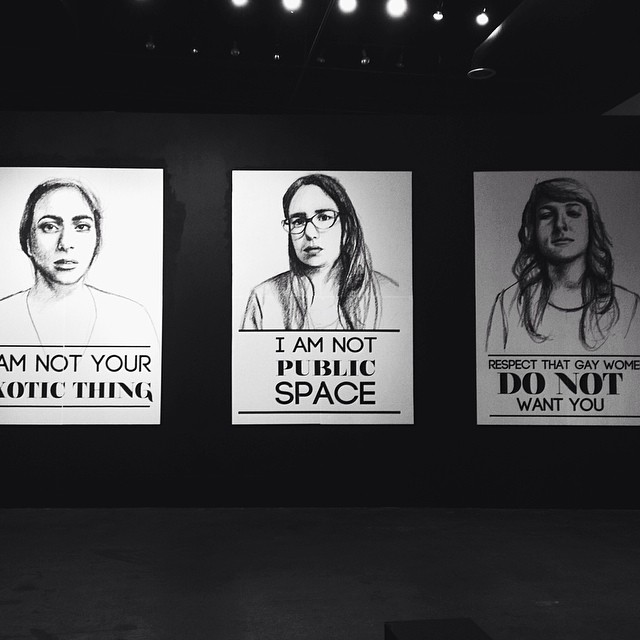I’m Not Your Baby: Fighting Back Against Street Harassment
 (Image via)
(Image via)
It’s an issue affecting over 80% of women globally, from London to Lima. A phenomenon that not only crosses cultural boundaries but also spans generational lines. It can be verbal or physical, and make walking in public anywhere from annoying to downright dangerous.
I’m talking about street harassment.
According to the non-profit organisation, Stop Street Harassment, it is any action or comment between strangers in public places that is disrespectful, unwelcome, threatening and/or harassing and is motivated by gender or sexual orientation. In countries such as India and Bangladesh, it’s termed “eve teasing”, and in Egypt it’s called “public sexual harassment.”
Street harassment seems to come with puberty, along with growth spurts and acne. One minute you’re innocently walking home from school, and the next a guy is leering at you like you’re a platter of Buffalo wings. He obnoxiously vies for your attention, and you turn him down. However, he’s persistent. You become self-conscious and wish that you had worn a longer skirt, or perhaps a cardigan. But it doesn’t matter, because fifteen years later you’re still dealing with the same drama. Only this time you’re wearing a business suit and dodging a dude who has an eerie resemblance to Patrick Bateman:

(Image via)
Luckily my personal experiences have been more irritating than threatening. Some occurrences I’ve been able to simply laugh off. Like when a guy who seemed to channel the rapper Paul Wall went on about how I was “finer than his baby mama”, and insisted on taking me out (I declined). Other occasions have been more serious, including the time I was followed down the street until I agreed to “at least” take the pursuer’s number (I never called). Or the instances when I’ve had the word “bitch” thrown at me for ignoring catcalls (and they remained ignored).
But for a number of women things have turned violent. I remember reading an article several years ago about eighteen-year-old Tanganika Stanton, who was gunned down in front of her Washington D.C. home after ignoring the advances of a passer-by. Soon, I came across several other disturbing cases — and these were only the ones from the U.S. – I could only imagine how many similar incidents had happened in other countries.
And how what happened to these women could happen to anyone.
Fortunately, there are a number of movements combating street harassment.
They’re taking place from the crowded streets of Seoul to the small towns dotting Appalachian Ohio. One major effort is led by Hollaback!, a non-profit organisation and movement that’s committed to ending street harassment. It currently operates in over 70 cities throughout 24 countries, and does everything from marches and film screenings to conducting research and meeting with elected officials. It also runs an app, where users can submit their stories.
Additionally, art is being used as a platform. In 2012, artist Tatyana Fazlalizadeh started the series “Stop Telling Women to Smile”, on the streets of New York City. It has appeared in major cities throughout America, and uses the portraits and experiences of a diverse group of women. The series has been met with some backlash, and the same derogatory terms used by harassers have been scrawled onto posters in various city streets. However, the project’s support is more powerful and, nearly two years later, continues to go strong.

(Image via)
Also, it’s important to note that the fight against street harassment must incorporate male allies.
When discussing this topic, it can be easily seen as an “us” vs. “them” matter that divides the sexes. However, Hollaback! was started by a mixed-gender group; and the work of Tatyana Fazlalizadeh has had many male supporters. Plus, we need men to share with their peers the fact that masculinity shouldn’t be measured by the number of women that they pick up or demean. It is especially important that this message be shared with the next generation:
So ladies, have you dealt with street harassment? And gents, have you been able to convince someone to stop doing this (or have you engaged in this behavior in the past)? Also, do you know of any other causes working to tackle this issue?
Tags: catcalls Hollaback! rudeness society Stop Telling Women to Smile street harrassment Tanganika Stanton Tatyana Fazlalizadeh
Categories: Empowerment: Man! I feel Like a Woman! Erin Johnson Fire me up baby!
4 Comments
Thank you for writing this. I had not heard of “Stop Telling Women to Smile,” which is a brilliant title. I would get so frustrated walking down the street in NYC and daily getting cat called. And every woman has this story, in big cities and small.
You’re welcome Katie, and thank you for reading. And I’ve noticed that men in NYC seem to be especially aggressive!